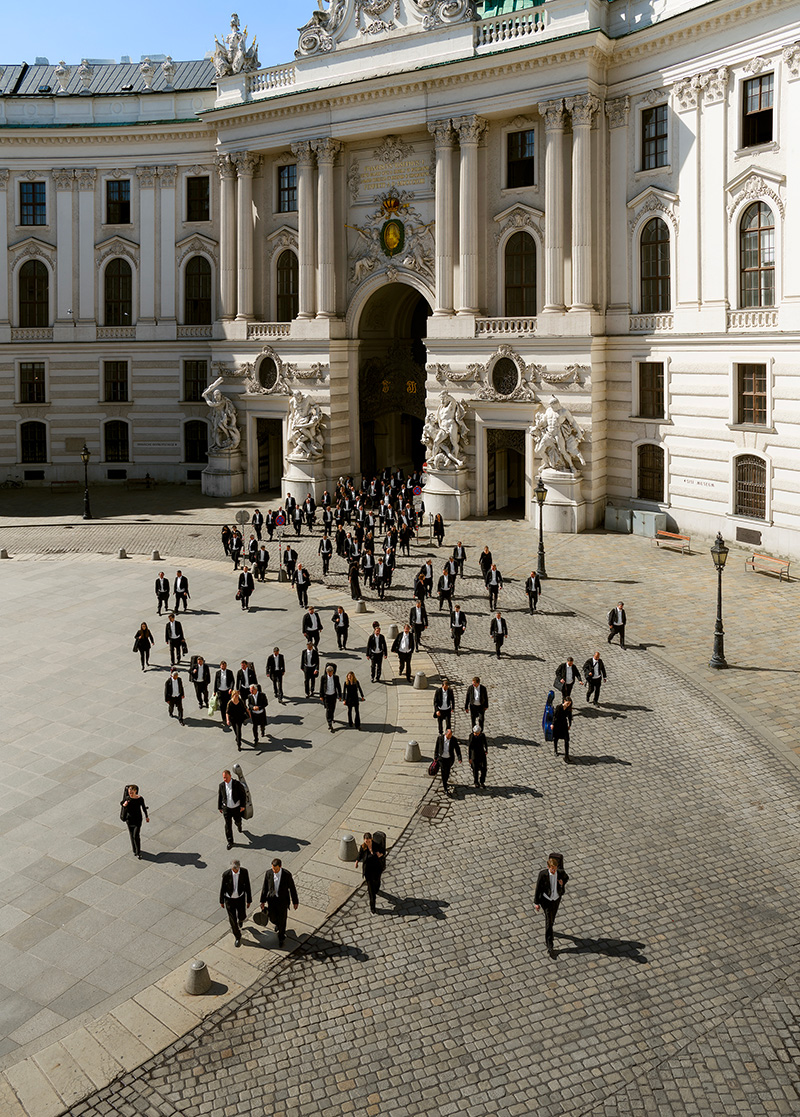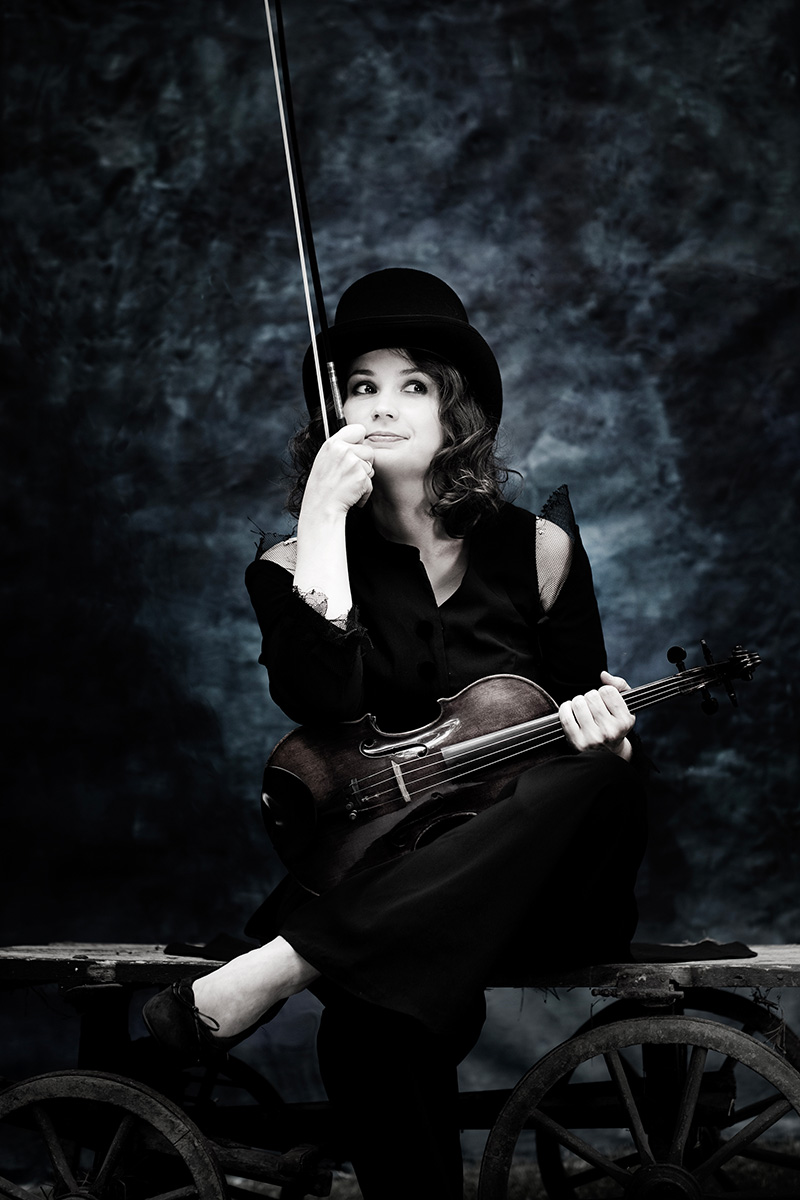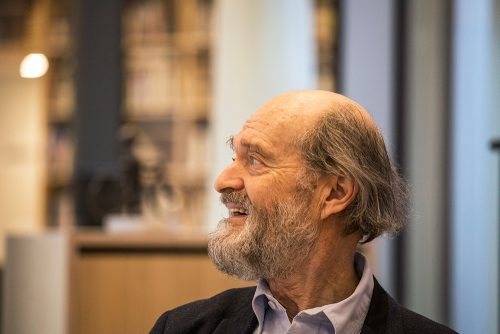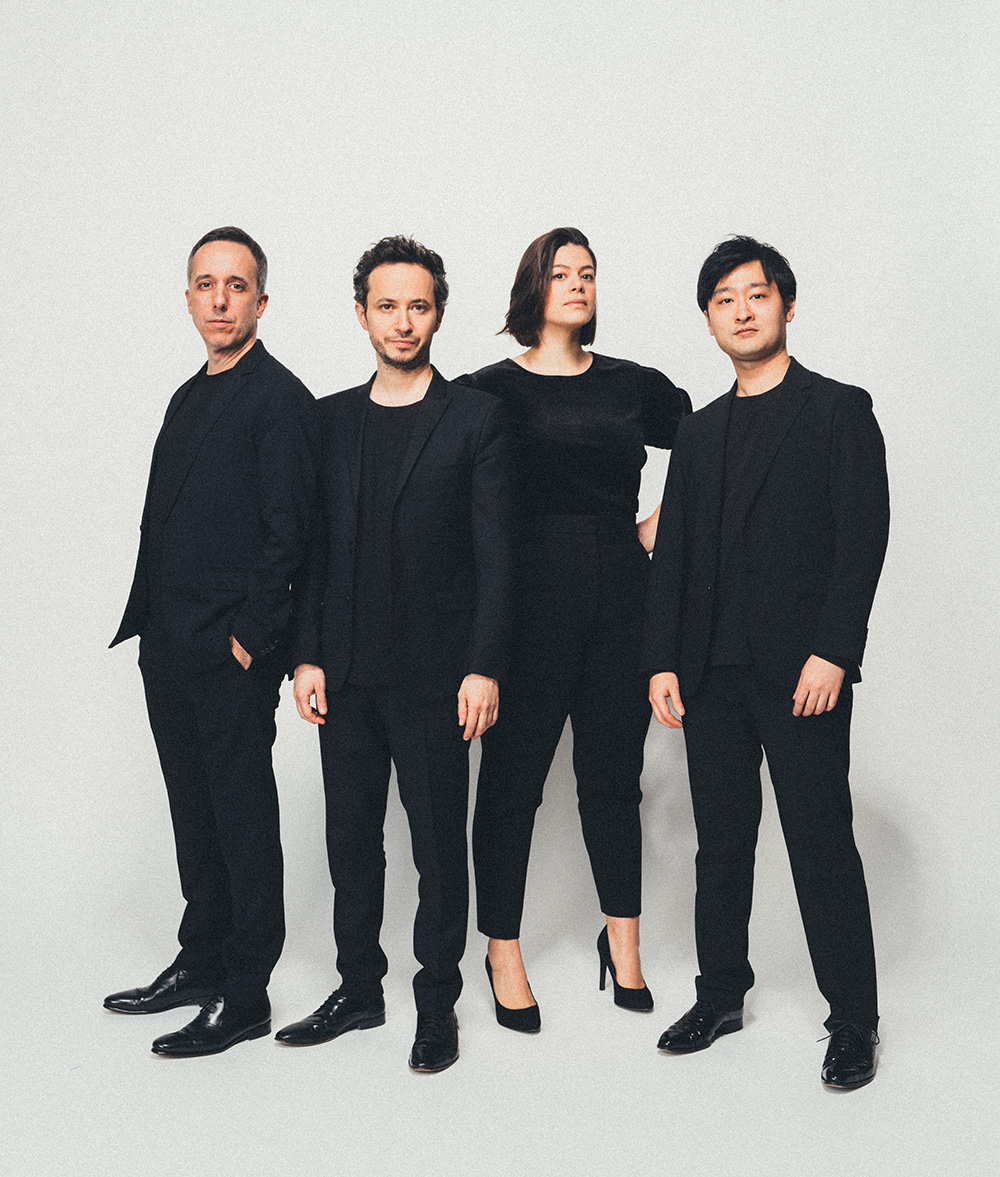The 80th Prague Spring Festival announces its programme, offering numerous debuts and grand returns
World-class orchestras, the return of renowned artists and ensembles, fresh faces making their Czech and festival debuts, as well as world and Czech premieres – these are just a few of the highlights of the 80th edition of the Prague Spring International Music Festival, which will take place from 12 May to 3 June 2025.
“The programme of the 80th edition of the Prague Spring is deeply rooted in the vision instilled by its founder Rafael Kubelík back in 1946: to showcase the finest and most fascinating offerings from the world of classical music while enriching the Czech cultural landscape with diversity and artistic dialogue,” says the festival’s director Pavel Trojan. “The commemoration of eighty years since the end of the Second World War and a reflection on the rich history of the Prague Spring, one of the oldest European festivals of classical music, have become both a responsibility and a challenge for us. The programme for this anniversary honours tradition while confidently looking to the future. We present a repertoire that brings the best from the world of classical music, that inspires, explores, provokes thought, and does not forget to feature young Czech artists and creators. I believe that in doing so, we reaffirm the prestigious standing of the Prague Spring not only on the Czech cultural scene but across Europe,” he adds.
World-class orchestras
The orchestral series will undoubtedly present the greatest highlights of the Prague Spring 2025. For the first time in its more than 130-year history, the Chicago Symphony Orchestra will perform in the Czech Republic. Boston Symphony Orchestra and the Göteborgs Symfoniker will also make their Prague Spring debuts. Returning to the festival will be the London Symphony Orchestra, Tokyo’s NHK Symphony Orchestra, and the Wiener Symphoniker led by their new chief conductor, Petr Popelka. Audiences can look forward to an array of world-renowned conductors, including Jaap van Zweden, Andris Nelsons, Santtu-Matias Rouvali, Sir Antonio Pappano, and Fabio Luisi, who returns to the festival after a long 35-year absence. Making its Czech debut with a Beethoven-themed programme will be the Kammerakademie Potsdam, conducted by Antonello Manacorda, who recently completed an acclaimed recording of Beethoven’s symphonies with the same orchestra.

Symbolic opening and closing for the festival
The symbolic opening of the 80th Prague Spring Festival will be entrusted to the Czech Philharmonic and its current chief conductor, Semyon Bychkov. “On 12 May 1946, the Czech Philharmonic, under the baton of its then chief conductor Rafael Kubelík, performed My Country for the first time in the history of the festival. Over the past eighty years, the orchestra has presented this masterpiece sixty-six times, of course including multiple repeats in a single same year. Among the most memorable performances was not only that first one with Kubelík but also many others led by other great Czech Philharmonic chief conductors – Karel Ančerl, Václav Neumann, Zdeněk Mácal, and Jiří Bělohlávek – or the very first Prague Spring performance conducted by a foreign maestro, Lovro von Matačić, in 1984. Entrusting the opening of the 80th edition of Prague Spring to this orchestra was an obvious choice,” says Pavel Trojan.

The Czech Philharmonic will also bring the 2025 festival to a symbolic close with two performances of Gustav Mahler’s Symphony of a Thousand on 2 and 3 June. “Mahler has traditionally been an important composer for the Prague Spring. These two performances of his Symphony No. 8, known as the Symphony of a Thousand, will feature an extraordinary vocal line-up, including two of the finest Mahlerian singers, Sarah Wegener and Jennifer Johnston,” notes the festival Program Director Josef Třeštík. Among the eight soloists will also be the British tenor star David Butt Philip, the bass David Leigh, and also two leading Czech singers, the soprano Kateřina Kněžíková and the baritone Adam Plachetka.
Artist-in-residence Patricia Kopatchinskaja
“One of the key missions of Prague Spring, which I hold in particularly high regard, is to introduce the Czech audience to artists who are fully established abroad, shaping the contemporary classical music scene, but who are still relatively new to the Czech stage,” explains Josef Třeštík. Therefore, this year’s lineup includes for example the Finnish conductor Santtu-Matias Rouvali, music director of the Kammerakademie Potsdam Antonello Manacorda, and the Quatuor Ébène – one of the world’s top string quartets. “A major star will certainly be this year’s artist-in-residence, the violinist and performer Patricia Kopatchinskaja, who, while already known to Czech audiences, will be presented at the festival in a series of unique projects reflecting her unorthodox and innovative approach to music and concert form,” Třeštík elaborates. Kopatchinskaja is among today’s most sought-after artists, as demonstrated by her numerous artistic residencies at prestigious institutions such as London’s Southbank and Barbican Centres, the Vienna Konzerthaus, and the Elbphilharmonie, as well as collaborations with some of the world’s leading orchestras, including the New York Philharmonic, the London Symphony Orchestra, the Royal Concertgebouw Orchestra Amsterdam, and the Berlin Philharmonic, where she has also been an artist-in-residence. She also collaborates with living composers such as György Kurtág, Michel van der Aa, Márton Illés, Thomas Larcher, and Esa-Pekka Salonen, and serves as an Artistic Partner at the SWR Experimental Studio, one of the leading international research centres for electronic music.

Patricia Kopatchinskaja will arrive in Prague with her long-standing artistic collaborators, the Camerata Bern orchestra and the pianist Joonas Ahonen, who spent twelve years as a member of the Klangforum Wien. Across three concerts on 16, 17, and 18 May, she will showcase her extraordinary talent not only as a violinist in the Time & Eternity project but also as a performer, taking on the acting role of Pierrot in the famous and once scandalous music-dramatic cycle Pierrot lunaire by Austrian composer Arnold Schoenberg. The final evening of her residency will be dedicated to the music of the Czech composer Luboš Fišer. “The evening dedicated to Luboš Fišer will perhaps mean the most to me, since I think he is too little known and deserves much more recognition,” says the artist about the concert, during which she will perform two of Fišer’s violin sonatas: In memoriam Terezin and Hands. Joonas Ahonen will also perform Fišer’s Piano Sonata No. 3. “I consider this gesture by Patricia Kopatchinskaja to be a tremendous honour for Czech music and for Luboš Fišer, who is one of the most original Czech composers of the 20th century,” concludes Pavel Trojan.
Significant Anniversaries
The 80th year of the Prague Spring will commemorate several important events in 2025, particularly the 50th anniversary of the death of the composer Dmitri Shostakovich, who visited the festival several times, and the 90th birthday of the Estonian composer Arvo Pärt, whose music will be performed by the Estonian Philharmonic Chamber Choir, an ensemble that has won two Grammy Awards for recordings of Pärt’s works. The festival will also mark 80 years since the death of the Hungarian composer Béla Bartók and 100 years since the birth of the Czech composer Jindřich Feld. The Wihan Quartet will celebrate its 40th anniversary, and the Wiener Symphoniker and the Göteborgs Symfoniker will celebrate their 125th and 120th anniversaries, respectively, in 2025.

World and Czech Premieres
“The Prague Spring consistently and thoughtfully nurtures not only the historical legacy of Czech music but also its future. This has been one of the festival’s key priorities. As a result, a large part of music newly composed in the Czech Republic is being created on commission from the Prague Spring,” says Pavel Trojan. On 30 and 31 May, the Prague Offspring project dedicated to contemporary music will be held for the fourth time at the DOX Centre for Contemporary Arts in Holešovice, with five new works by Czech and Slovak composers being commissioned for the occasion. This time, the management has approached Haštal Hapka, Jan Ryant Dřízal, Barbora Tomášková, Pavel Šabacký, and Slavomír Hořínka, whose nearly thirty-minute piece Grain, Chaff and Fire is being composed directly for the Frankfurt-based Ensemble Modern. The Ensemble will serve as Prague Offspring’s new resident ensemble for three seasons, until 2027, following in the footsteps of Klangforum Wien. All commissioned pieces will have their world premieres at the festival. As usual, two new works will also be composed for the Prague Spring International Music Competition: a solo oboe piece by Jan Klusák and a cello composition by Pavel Zemek-Novák. The festival will also feature the world premiere of Four Songs about Happiness by Jindřich Feld, performed by Lucie Kaňková and the Wihan Quartet. Czech premieres will include the concert performance of the opera Into the Little Hill by the Prague Offspring’s resident composer Sir George Benjamin, In the Forest by the Japanese composer Toshio Hosokawa, performed by the Kammerakademie Potsdam, and Self-Portrait in Three Colors by Raphaël Merlin, which will be presented by Quatuor Ébène just three months after its world premiere in Paris.

Early music in masterful interpretations
The festival’s “early music” series, dedicated to historically informed performance, will range from Italian Trecento music to an authentic performance of Mozart’s Requiem. On 17 May, the French Ensemble Sollazzo, winners of the Cambridge Early Music Prize, will present a programme entitled La dolce vista, featuring works by Francesco Landini, the most prominent Italian composer of the 14th century and a blind organist of Florence. Making their Czech debut on 26 May, the French Ensemble Correspondances will perform works by Jean-Baptiste Lully, the founder of French opera in the tragédie-lyrique genre and a composer at the court of Louis XIV. One of the festival’s highlights will be a performance of Mozart’s Requiem on 24 May by Concentus Musicus Wien under the baton of Tomáš Netopil. “Mozart’s Requiem has not been performed at the Prague Spring for fifteen years. We’ve waited for the right moment to present this iconic and much-performed work in a truly definitive interpretation. Concentus Musicus Wien has Mozart’s music in its DNA, and the conductor Tomáš Netopil demonstrates an incredible sensitivity for Classical music. Thus, the right moment has come,” says Pavel Trojan. Mozart’s music will be paired with works by the Czech Classical composer František Xaver Richter, whose music Netopil describes as “a work which not only proves the immense musicality of the Czech environment in the 17th and 18th centuries, but also points to a wealth of musical figures who originated in our Czech basin and determined the direction of 18th century European musical aesthetics.” This project thus subtly underscores another major contribution of the Prague Spring: presenting Czech music in an international context and connecting Czech and foreign artists at the highest interpretive level.
Prague Spring for teenagers
Following the success of last year’s first edition, Prague Spring is once again organising, in collaboration with the dramaturge Klára Boudalová, the Prague Spring Family Day, titled SpringTEEN. This project, designed for children of all ages, from the very young ones to teenagers, will again take place at the grounds of the National Gallery’s St Agnes’Convent. Children will have the opportunity to engage actively in music and art workshops, as well as participate in concerts, including the Grand Finale. The hosts this time will be the actor and singer Jan Cina and the vocal sextet Skety led by the composer Petr Wajsar, who is composing a special piece for the final gala, which will also involve the audience. Unlike last year, the event will be held on Saturday, 31 May, from 2 p.m.

76th Prague Spring International Music Competition
The Prague Spring Competition is one of the oldest music competitions in Europe, with a history dating back to 1947, when it was inaugurated under the honorary chairmanship of the then Minister of Foreign Affairs, Jan Masaryk. The 76thedition will feature oboe and cello, two instruments with a long tradition at the festival. Notable past winners include Mstislav Rostropovich, Natalia Gutman, and Victor Julien-Laferrière for cello, and Maurice Bourgue, Diana Doherty, and the Czech oboist Liběna Séquardtová for oboe. Presiding over the 2025 juries will be Raphael Wallfisch (cello) and Nancy Ambrose King (oboe). The competition will take place from 6 to 14 May, with the finals held on 13 and 14 May in the Dvořák Hall of the Rudolfinum, accompanied by the Prague Philharmonia and the Prague Symphony Orchestra (FOK). Following the success of the Audience Prize in 2024, spectators at the final rounds will again have the opportunity to vote in a poll.
Collaboration with the National Theatre
The long-standing collaboration with the National Theatre Opera in Prague, which dates back to the very beginning of the festival, will continue, having offered numerous fascinating productions over the past eighty years. As part of the 2025 festival, there will be a premiere on 22 May of a new production of Leoš Janáček’s opera Jenůfa, directed by Calixto Bieito and conducted by Stefan Veselka, a Norwegian conductor of Czech descent.
Prague Spring Art Salon
Musical experiences at the festival will be complemented by the second edition of the Prague Spring Art Salon, an accompanying visual arts programme. Concertgoers at the Municipal House and the Rudolfinum will have the chance to view works by leading Czech visual artists, which will be auctioned off in a charity event organised by the KODL Gallery on 25 May. The proceeds will go towards further artistic development of the Prague Spring festival.






